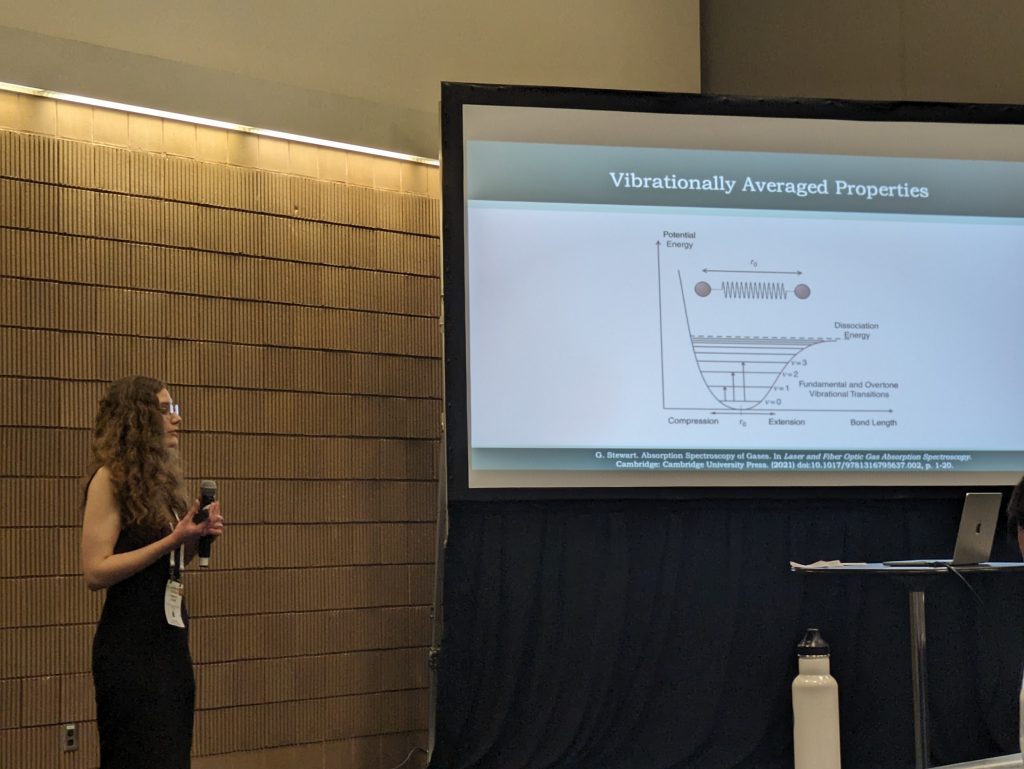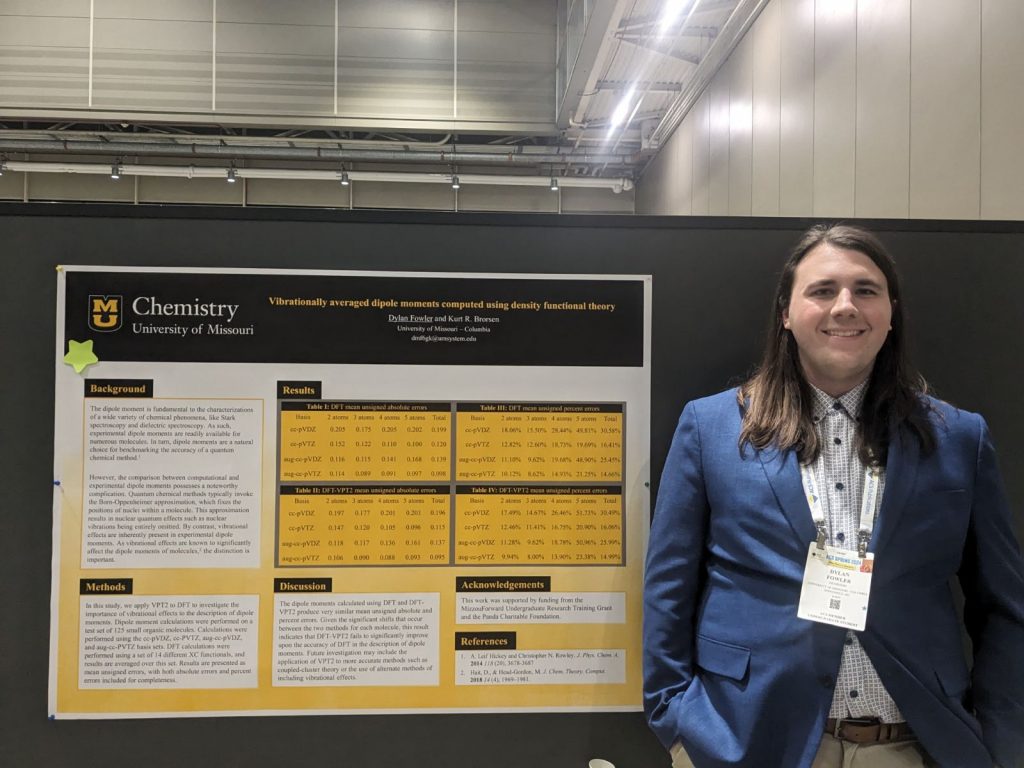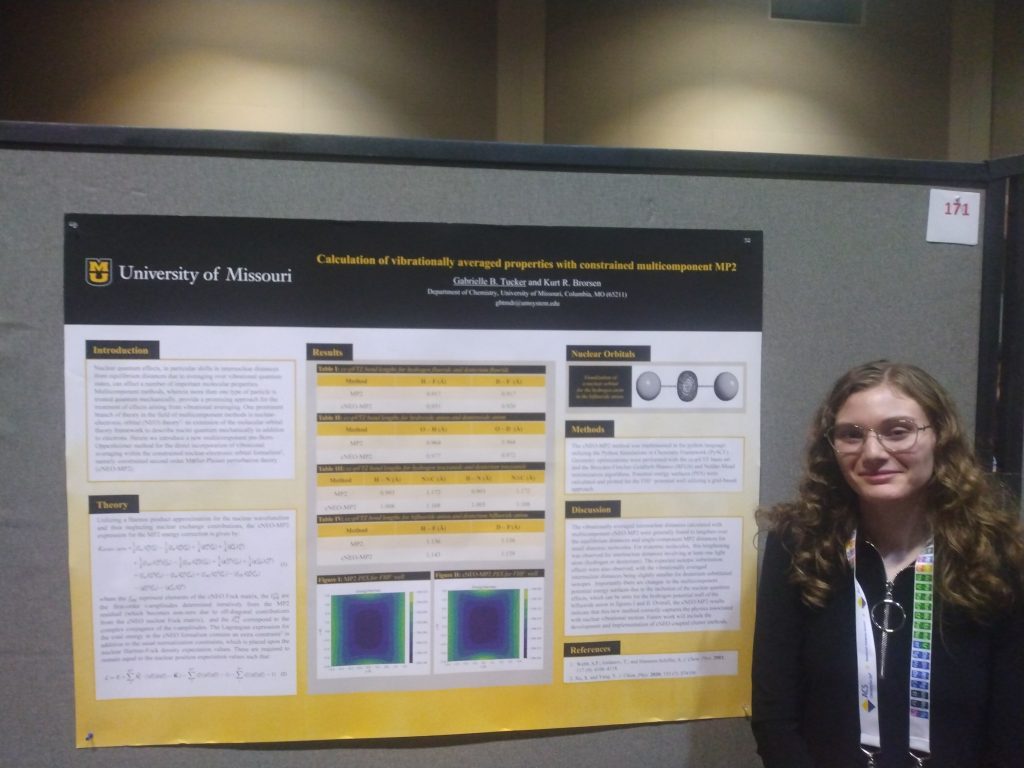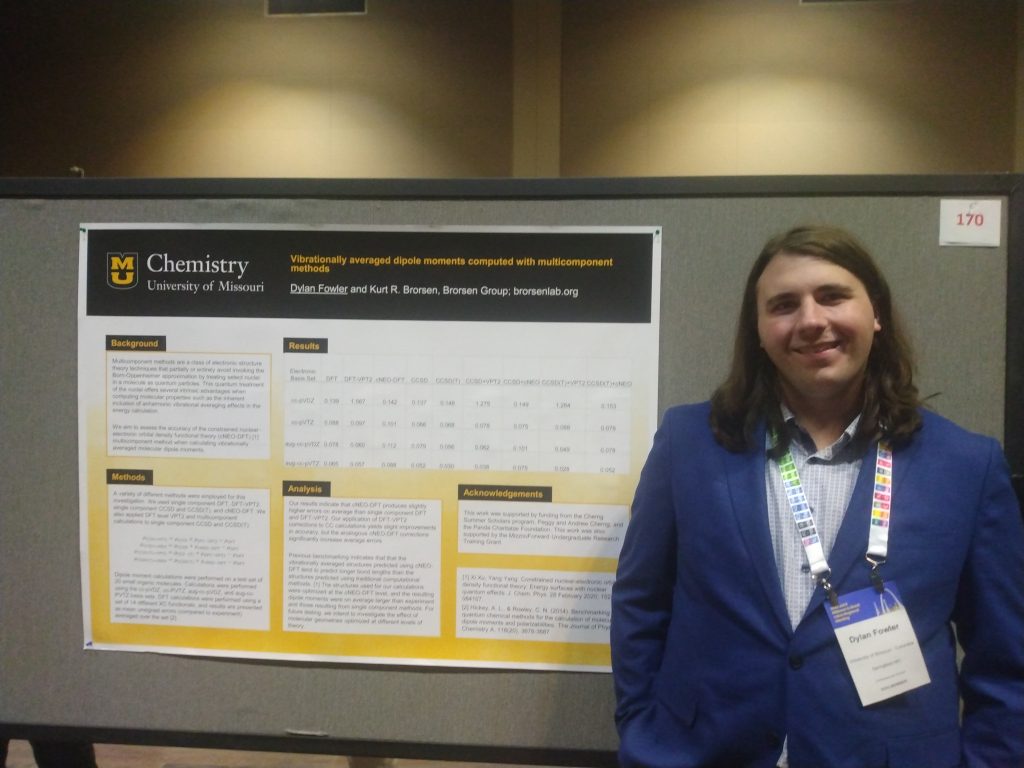The group recently had the pleasure to attend the 2024 Spring ACS meeting in New Orleans. They experienced some significant flight delays that resulted in Gabbie and Dylan arriving at 3:00a to their hotel. The next day Gabbie powered through on about three hours of sleep to give a talk on her recent work implementing constrained multicomponent MP2:

(As is probably clear from the better quality of this photo compared to the ACS MWRM photos, Kurt got a new phone for Christmas)
Dylan presented a poster on his recent work investigating the accuracy of vibrationally averaged dipole moments calculated with DFT-VPT2:

In combination with Prof. Yang Yang of the University of Wisconsin-Madison and Sharon Hammes-Schiffer of Princeton University, Kurt co-organized a symposium at the meeting on “Coupled-Quantum Systems.” He also ate gumbo every day while in New Orleans.
All-in-all, it was a successful conference. We were happy for the chance to catch up with old friends and meet many researchers whose work we had admired from a distance.


